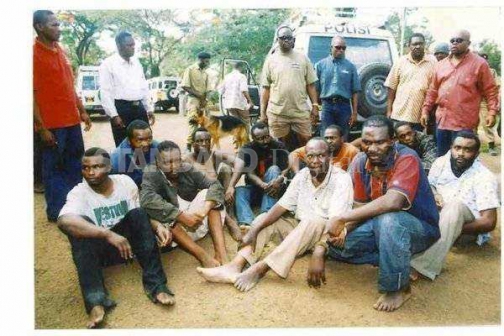×
The Standard e-Paper
Stay Informed, Even Offline

On the breezy morning of Friday December 16, 2005 a group of heavily armed Mozambican police officers stormed Maputo’s Villas Das-Mangas homes and arrested eight Kenyans.
Another group of officers simultaneously intercepted and arrested four Kenyans driving in a Mitsubishi Pajero vehicle on a Maputo road. Those events transpired into what has since then been a decade-long abduction conspiracy involving senior Kenyan police officers -- a tale of agony, despair, torture and murder most foul spanning three countries.